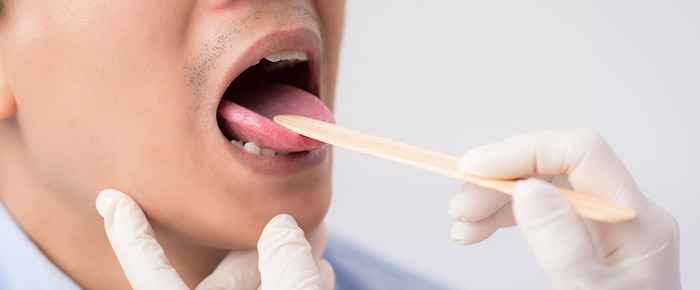Tongue Strength Boot Camp: Measurement and Exercises for Older Adults

We all know that daily physical activities like walking or kicking a ball require muscle strength. But, you might not have thought about the importance of tongue strength for eating and drinking. It turns out that your tongue plays a crucial role in enjoying a morning cup of coffee, a celebratory meal, or a glass of fine wine. Research shows that tongue weakness in older adults or those that have experienced a neurological injury can negatively impact their ability to swallow safely and efficiently. Older adults with tongue weakness are more likely to aspirate when drinking (liquid entering the airway)1 and take much longer to complete a meal.2
Why You Should Consider Measuring Tongue Strength
Clinicians working with older adults who are at risk for dysphagia should consider measuring tongue strength. It’s easy to do and may help identify individuals at risk for aspiration.
Subjective Measurement
Tongue strength can be measured subjectively by asking a patient to push their tongue up against the roof of their mouth. By inserting a tongue depressor between the tongue and the alveolar ridge, you should be able to gauge the pressure.
Objective Measurement Using Instruments
Alternatively, tongue strength can be measured objectively by using commercially available instruments. The Iowa Oral Performance Instrument uses an air-filled bulb about the size of a half-teaspoon to measure strength. When a person compresses the bulb between the tongue and the hard palate, it measures the force used based on the air that is squeezed out of the bulb.
Building Tongue Strength Through Exercise
Measuring tongue strength is only the first step. Research also shows that it is possible to build tongue strength through exercise – literally taking your tongue to the gym!3 Several different studies now show that repeated resistance exercise builds tongue strength, and the impact on swallowing is promising. A variety of tongue exercises can be practiced including:
- Strength exercises – Imagine lifting a free weight repeatedly with your tongue.
- Endurance exercises – Imagine lifting a free weight and holding it for as long as possible.
- Power training – Imagine lifting a free weight as fast as possible
The Impact of Tongue Strength on Swallowing
Picture yourself as an older adult and for every mouthful of water or food you need to swallow 5 times to feel like your throat is finally clear. You also often experience a tickle in your throat after taking a sip of coffee. Research suggests that tongue-strengthening exercises can help to improve the efficiency of swallowing. As a result, fewer swallows are needed to completely clear material through the throat. Also, improved tongue strength has been associated with reduced aspiration.4
Boot camp for the tongue is possible and shows promising outcomes. It’s worth a try!
- Butler SG, Stuart A, Leng X, Rees C, Williamson J, Kritchevsky SB: Factors influencing aspiration during swallowing in healthy older adults. Laryngoscope 120: 2147-2152, 2010.
- Namasivayam AM, Steele CM, Keller H: The effect of tongue strength on meal consumption in long term care. Clin Nutr, 2015.
- Robbins J, Gangnon RE, Theis SM, Kays SA, Hewitt AL, Hind JA: The effects of lingual exercise on swallowing in older adults. J Am Geriatr Soc 53: 1483-1489, 2005.
- Robbins J, Kays SA, Gangnon RE, Hind JA, Hewitt AL, Gentry LR, Taylor AJ: The effects of lingual exercise in stroke patients with dysphagia. Arch Phys Med Rehabil 88: 150-158, 2007.

